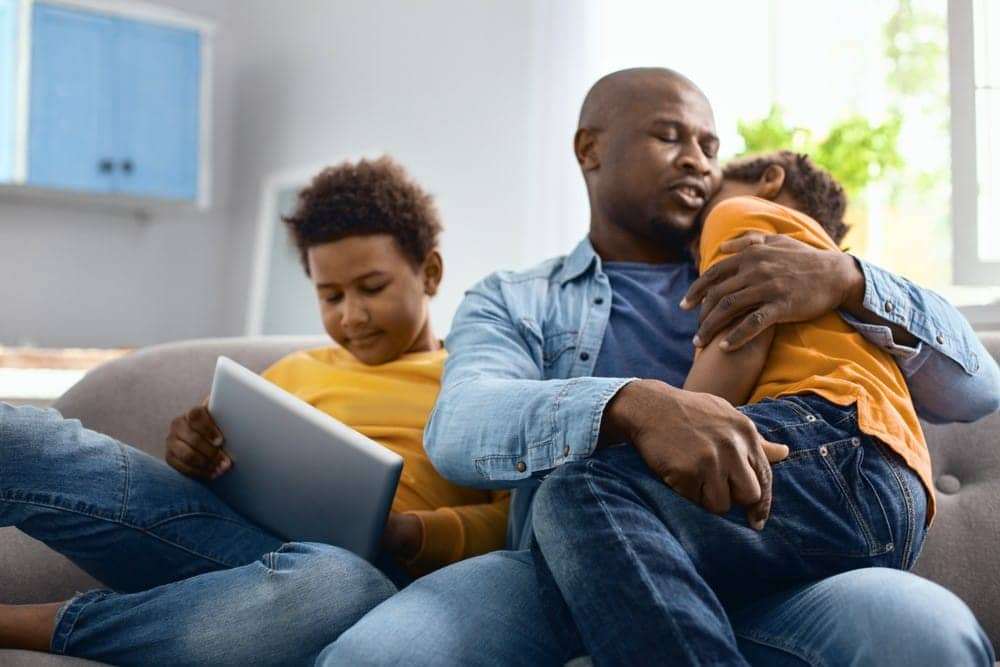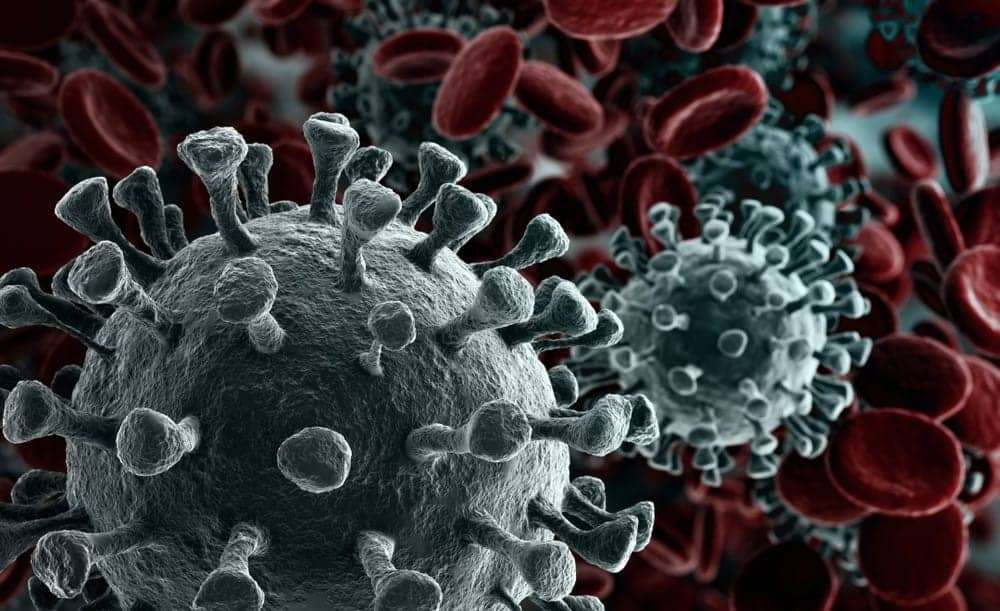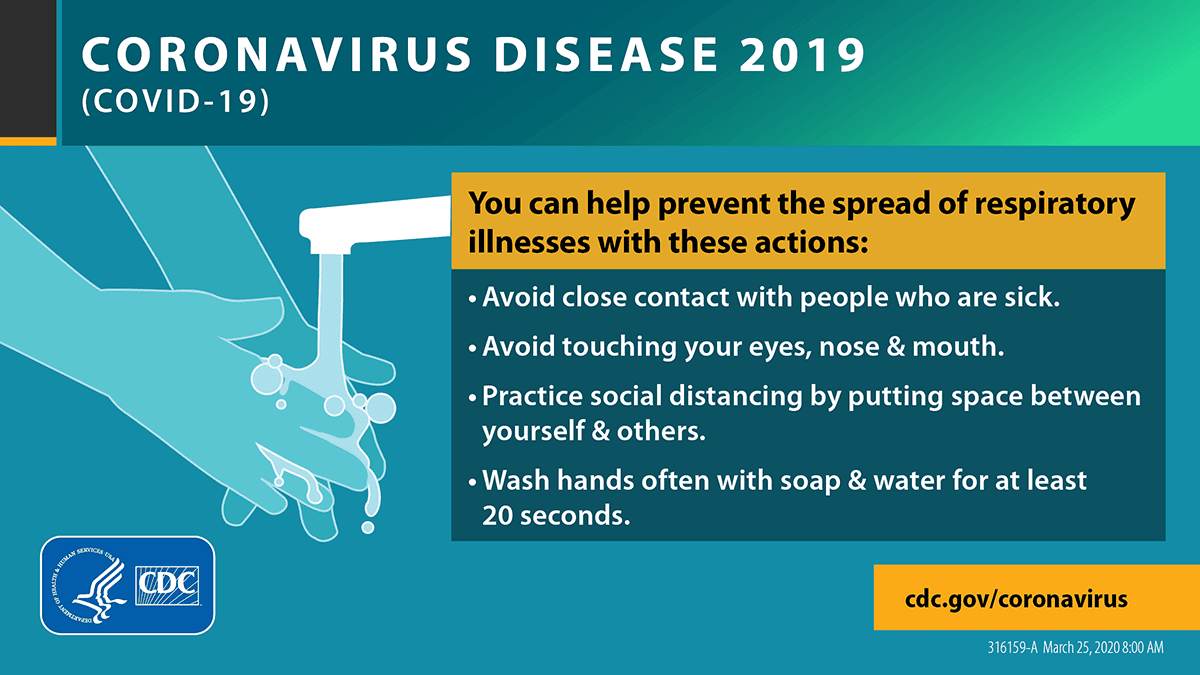
by Diana Hembree
It’s painful to think back to our lives just a few weeks ago, now that we’re holed up in our homes with no end in sight. We’ve never had to deal with a pandemic like COVID-19 that upended our lives overnight, with schools, universities and most businesses shut down, hospitals scrambling to prepare for an onslaught of novel coronavirus victims, and government orders to stay at home indefinitely. These precautions are necessary to save our lives, but that doesn’t make them any less terrible – especially if you were laid off as a result.
“We feel the world has changed, and it has,” grief expert David Kessler said in a recent interview. “We know this is temporary, but it doesn’t feel that way, and we realize things will be different … The loss of normalcy; the fear of economic toll; the loss of connection. This is hitting us and we’re grieving collectively.”

We’re also worrying collectively about our loved ones. If your children have gone through Adverse Childhood Experiences (ACEs) such as abuse, divorce or parent-child separation, they are among those most likely to be triggered by the COVID-19 outbreak and its aftermath. Here is some science-based advice on how to help children through such crises:
Stay calm and centered – at least around the children. During such an unprecedented time, you are probably dealing with crushing stress. But as you would during a natural disaster, try to stay as calm as possible – “children are looking at you on how to respond,” says Sarah Thompson of the global organization Save the Children.
Support the government’s protective orders. Explain to the kids why they can’t play with their friends right now or even grandmother and grandfather. You might tell them about the immune system – for small children, some experts suggest saying they have a lot of superheroes inside them to fight the bad guys, but old people don’t have as many so they need to help protect them.
Clean your household surfaces every day, help kids wash their hands for 20 seconds with soap and water, and tell them to sneeze into their sleeve or to use a tissue, then throw it away. If you take them outside for a walk, keep them at least six feet away from other people. And of course, if they or other family members get sick, call your doctor for advice right away.
Be comforting. Your small children may actually be happy to stay home, although they may miss their friends and long to play with them outside. Be prepared for some behavior changes.
Your little ones may be upset and even inconsolable if they lose a favorite toy, blanket or stuffed animal. They may go from being joyful and outgoing to timid and distrustful. They might regress to bed-wetting or whine, have nightmares, throw tantrums, and not want to let you out of their sight.
Teens in high school may feel the loss of school more keenly, especially if they are missing out on sports, theatre, music or relationships. Don’t be surprised if they are extra grumpy or sullen. All this can be trying when you, too, are feeling traumatized, but be as empathetic and reassuring as possible.
Encourage your children to talk about their feelings. It’s natural for children and adults under such circumstances to feel anger, guilt, sadness and fear, according to the American Academy of Pediatrics (AAP). Let your children know their feelings are normal ones to have after a disaster.
“Validate their emotions – let them know it’s ok to be angry or scared,” said Thompson. “Assure them it’s not their fault, since small children sometimes assume that it is. Let them know that caring adults are working to keep them safe.”
With teens, acknowledge that they have suffered a major loss and how hard that must feel. Encourage them to create a new routine that includes time for reading, exercise, music or art, connecting with the family, visiting with friends over social media, and participating in Tiktok’s #safehands challenge or using dance as a way to cope with all this madness. The wildly popular GhenCoVy coronavirus dance challenge, for example, mimes washing your hands, not touching your face, avoiding crowds, and banishing the virus for good; like many TikTok users, your kids may want to post pictures of themselves (and maybe you!) recreating the dance at the hashtag #GhenCoVyChallenge.
Reassure them of your love. It’s more important than ever to reassure your child that he or she “is loved, safe (in whatever realistic or truthful way they are), and cared for,” according to the AAP.
Model kindness. The virus should not be blamed on any country or individual: We are all in this together. It’s important that all children understand that.
Keep up your daily routines. As much as possible, stick to your “anchoring rituals” like bedtimes, mealtimes, story times, exercise, play, chores, bedtime stories and perhaps schoolwork, which boost kids’ sense of safety and security. Have a nightly check-in with your teens and watch Daniel Tiger or Sesame Street with your little ones. If you have the time and energy, try gardening or teaching your kids some favorite recipes in the kitchen.
Monitor the news. Young children don’t need to see or listen to alarming news accounts about the new coronavirus. It’s good – without sugarcoating – to point to people and services that are trying to help.
Take walks. Exercise and time spent in nature are both science-based ways to relieve stress. In many states with stay-at-home orders, including California, you’re still allowed to walk the dog or take a stroll for exercise during the state of emergency – as long as you stay at least six feet away from other people who aren’t in your immediate family.
Give a friendly nod and greeting to strangers who pass by so no one will take it personally if you cross the street when you see them coming. In the house, have a dance contest, break out some yoga and exercise videos, jump rope, or play balloon tag.

If you’re laid off due to COVID-19
Of course, if you are among the millions of people who work in a small business or the restaurant, hospitality or leisure industry, you may have a lot more to worry about than how you can keep yourselves and the kids from going stir-crazy. Perhaps you have been laid off suddenly due to your workplace’s temporary closure after a state order for everyone to “shelter in place.” What a horror! The federal government is planning to send one-time checks between $600 and $1200 to individual taxpayers and families in the next three weeks or so, according to news reports, but don’t wait for that to happen to take action. Here is some advice for protecting yourself, your children, and other loved ones:
File for unemployment immediately if you’ve been laid off. It can take three weeks to kick in.
You’ll receive an additional $600 per week for unemployment from March 27 (the date the CAREs Act for COVID-19 relief was signed) until July 31, and if you are still unemployed after that, you’ll receive regular unemployment checks for the rest of your 39 weeks.
Also, some good news: Previously ineligible groups like gig workers, freelancers, farmers, independent contractors and self-employed workers with an S corporation or limited liability company (LLC) will also qualify for unemployment. However, if people are paid in cash and have no pay stubs, it may be difficult or impossible to obtain unemployment – something that will hit domestic workers particularly hard.
One day the United States, like Finland, will decree housing a basic human right. In the meantime, you and your family deserve a place to live.
Seek rental assistance if necessary. If you live in San Francisco and need help, get in touch with San Francisco Catholic Charities (415-972-1301; 180 Howard St.), which runs a Rental Assistance Program for the unemployed, low-income and working poor. If you are worried about eviction, they may be able to help.
If you are already homeless and staying in a family shelter, contact First Avenues Rental Subsidy Program (415-751-9577), which can help find housing and pay for the first month’s rent or a security deposit.
Call your lender. If you were affected by COVID-19 and don’t have enough saved to pay the mortgage, contact your lender immediately: Some have agreed to offer loan forbearance and take no or lower payments until the state of emergency is over. Try to negotiate a plan to pay off the amount you will owe gradually – not in a killer lump sum – and get everything in writing.
Be aware that the Federal Housing Finance Agency recently announced that it would suspend foreclosures and foreclosure-related evictions on homes with mortgages backed by Fannie Mae and Freddie Mac for at least two months, a step that will temporarily protect 8.1 million homeowners. (However, the lenders will seek to be repaid afterward, so try to make a payback arrangement in your favor with them now.)
Talk with your landlord. If you are a renter, talk with your landlord and try to work out an agreement for some extra time to pay the rent; if you are successful, be sure to get a signed agreement as well. Some cities and states have taken action to prevent evictions and foreclosure during this period, so be sure to find out what your city is doing to protect homeowners and tenants.
Check out food resources. If you are having trouble affording or finding enough food for you and your family, check out your local food pantries and see if your school system is offering free take-out lunches for the kids during the COVID-19 emergency. The Berkeley, Calif., school district, for example, offers pickups for free breakfast and lunch for any child 18 and under, and adults can access free groceries and meals distributed by food pantries and nonprofits.
San Francisco has gone one better: Its public school district (415-241-6000) offers free breakfast, lunch and support for children 18 and under at a total of 18 sites throughout the city through spring break (and possibly until schools open again).
In Los Angeles, the healthy food chain Everytable has asked Los Angeles residents who are food-insecure to call its hotline at 323-458-6487 if they need meals. Call or look online for your local food pantries, food banks and school district, and also just search under “free meals” – more and more cities and nonprofits are offering family meals while schools are closed and beyond.

Open a Go Fund Me account. If you are still in urgent need of assistance, consider a Go Fund Me account. It’s the government that should be funding Americans who’ve lost their jobs during this crazy time, but since it hasn’t done so (as of this writing), consider opening a Go Fund Me account and sending the URL to everyone you’ve ever met. Explain the situation and ask for enough to cover 12 to 18 months, because that’s how long some experts say we may be stuck at home (though it will probably be shorter).
Make contingency plans. If you feel like you’re in danger of eviction due to COVID-19 or other reasons, talk with your friends and extended family to see who might be able to put you up. Seek out your place of worship and ask for advice. See whether someone you know and trust might be able to offer you and your family a temporary place in exchange for work. Call your local representative and ask for help. One day the United States, like Finland, will decree housing a basic human right. In the meantime, you and your family deserve a place to live.
Diana Hembree is a former science writer for the Center for Youth Wellness, who wrote an earlier version of this blog for CYW’s Stress Health initiative and has adapted it for SF Bay View with permission. She is an award-winning journalist who has worked at Time Inc., the Center for Investigative Reporting and the Energy Bioscience Institute and has written or edited for Forbes, the Washington Post, PBS Frontline, Vibe and many other places. She can be reached at dkhembree@gmail.com.





